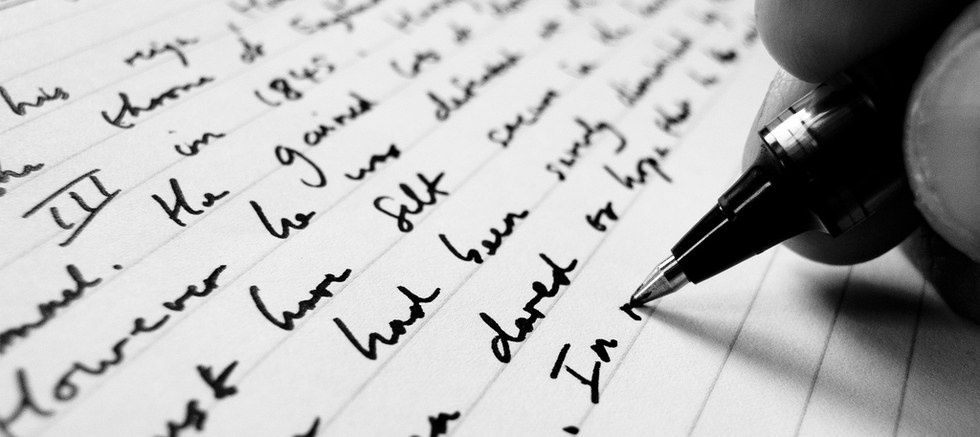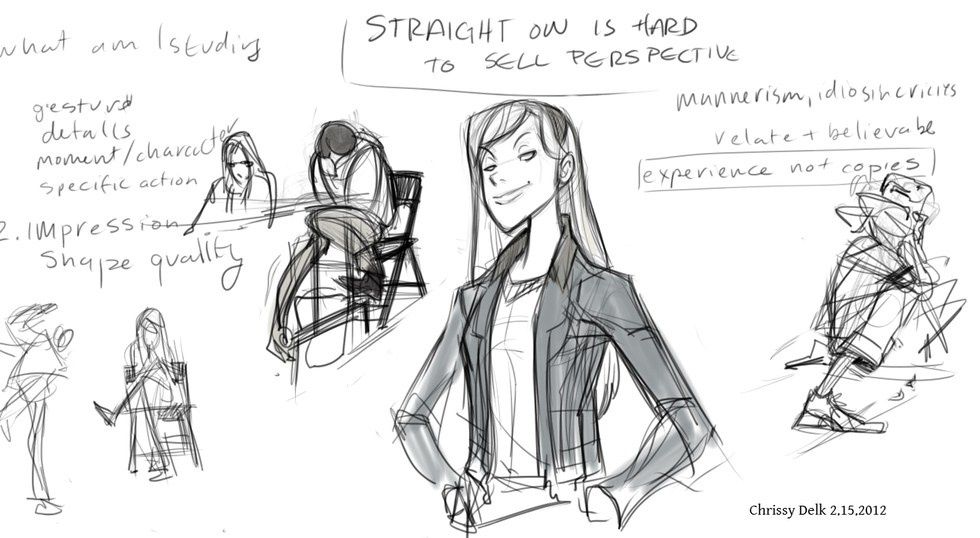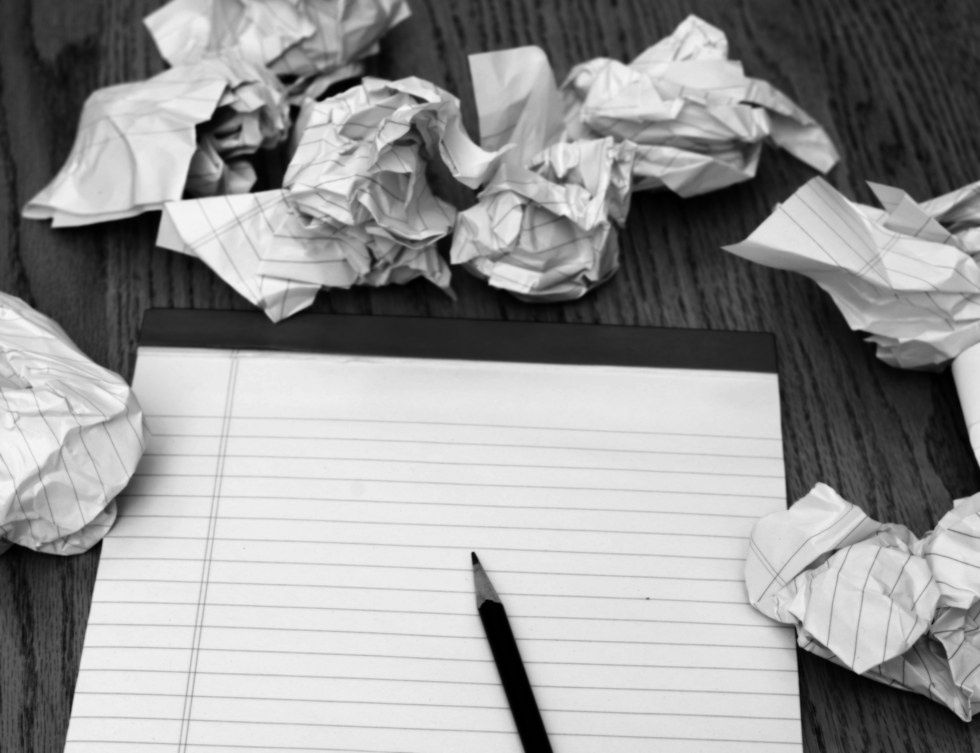So you want to write a book? Maybe you have aspirations of crafting the next great American novel, or you want to thrill audiences with stories of high fantasy and adventure. Whatever your reasons, there are several hurdles that come with writing a book. To make the entire process a little more bearable, here's a breakdown of the four simple steps you can take to write your book as effectively as possible.
STEP 1: Come up with a solid, original premise.
This is what will set your book and you apart from anything else that people will find in a bookstore. Your story's premise could be what set you on the course of wanting to write a novel. Maybe an idea fell into your head that you couldn't bear to not share with the world. Find an interesting perspective, talk about things that matter to you and present it in a way that you find interesting.
STEP 2: Flesh out your characters as much as you can.
Every good character is either running towards something or running away from something. Don’t be afraid to give your characters personality, or maybe even make some of them jerks. Think about how you’d react to things, and use that to influence how your characters behave. The more that you write these people, the easier it will become to know exactly how they’ll move through your story.
Take your protagonist and get to know them as well as you can.
- What do they like?
- What do they dislike?
- What's their favorite movie?
- What's their favorite fruit?
- What did they want to be when they grew up? Why?
- Why do they think Taylor Swift is overrated?
- Why do they sometimes use food as a coping mechanism?
- Figure out where they go to get their hair cut, what the precise instructions are that they give to their barber, and how they get annoyed that the barber insists on trimming their eyebrows but their too polite to tell him to stop.
It does seem silly and it's likely that you won't use most of those details, but it helps to flesh out the kind of person your character is. It's better to have those details and not need them, than to need them and not have them. Avoid making a character deliberately enigmatic as an excuse for not having a personality.
STEP 3: Read. Constantly.
If you’re writing without also reading, it’s going to hurt you. Learn from and become influenced by the texts that you encounter while writing. Revisit your favorite authors, look at what you like and dislike about their writing. Get inspired, whatever that means. Experiment with different styles and get swept up in other stories so you don’t become burnt out by only ever seeing your own. Fall in love with characters and places, mourn their loss and give them a bittersweet goodbye when you reach that final page before returning the book to the shelf. Find stories that affect you on an almost physical level and aspire to make other people feel that with your writing.
Go home, pull out the piles of notebooks where you've been collecting ideas on your book. Look at rough drafts of each chapter and get excited at the possibilities of what your story can become. Write and read every single day. Type until you wear out keys on your laptop. Write so excitedly in your notebooks that it's near-impossible to tell what you've been writing down and work until your fingers are so stained with ink that it looks like you've been finger painting the walls of a coal mine.
Lean back in your chair, looking at your completed draft. Run your fingers over your keyboard, and tap your feet excitedly, letting the feeling take over completely for the first time that you are a writer.
STEP 4: Stop Writing.
Hit a wall.
Lose focus.
Call it writer's block.
Get caught up with your job, your relationship or the 30+ hours you put into playing Call of Duty each week. Tell yourself that you just need a bit of a break.
Introduce yourself at parties as a writer and then talk about your book instead of writing it. Fall in love with the idea of a book instead of actually writing your story.
See your friends publish articles and become envious of their success. Use it as fuel to make yourself work. Read some of your older material and cringe. Lose confidence in your abilities as a writer and slowly sink to the floor and curl up into a ball.
Go to the bookstore. Pick up a book by your favorite author and get angry at the passage you read because they’re so much more talented than you. Swap that book for a novel by Dan Brown to give yourself some validation that your prose isn’t THAT bad. Realize your mistake, put the book back, wash your hands and go home.
Force yourself to sit down and write. Pull out draft after draft and wonder if you're actually making progress. Ask friends to read your material and then hesitate to actually let them read it because you're afraid of criticism.
Go to the liquor store and pick up a bottle of scotch. Try the Hemingway approach: Write drunk, edit sober. Wake up the next morning with a splitting headache and see that you wrote down nothing valuable. Decide that you don’t really like scotch and that Hemingway was a smug prick anyway.
Decide that you need to get out of your comfort zone. Decide to write a little something for the older readers because this isn’t a kid’s book after all. Get a little brave and then go write a sex scene. Try to push some boundaries with it and churn out a passage that would make Hester Prynne’s scarlet letter turn pale. Come back to this scene a week later and wonder why you thought a sex scene was a good idea. Re-read it and disgust yourself to the point that you begin to question your own personal seduction techniques. Delete that scene.
Change your mind on a daily basis over whether or not you believe your story is any good.
Obsess over word counts. Obsess over grammatical errors on rough drafts. Obsess over whether you’re conveying information correctly. Re-write the beginning of your novel and front-load all your exposition in a big block on the first thirty pages because your audience is probably too stupid to understand. After you chill out, restore it to the way it was.
Find some old short stories that you wrote four years ago, and wonder at where the inspiration and talent went. Continue to force yourself to write. Your friends say they like your story. Refuse to believe them.
Have some really good ideas as you’re falling asleep. Make a mental note of those ideas and completely forget about them by the time you wake up. Despair because you know your book will never be as good as it could have been without them.
Set deadlines for yourself.
Find beta readers.
One of your friends says they think your protagonist is unlikable and you wonder where your parents went wrong with you.
Set deadlines for yourself that you’ll actually keep.
Stumble upon the first drafts of your novel and struggle to read them without grimacing. Ultimately decide to save those drafts because it shows that you’re making progress.
Receive notes on passages you submitted to beta readers recently and try to not be too personally offended as you make up your mind that beta readers are stupid.
Study grammar meticulously because apparently, you made a new best friend in recent months and their name is comma splice. Proofread like crazy. Realize that your novel is nearing completion.
Check your email and see a message from your literary agent asking for the most recent completed version of your manuscript. Try not to pee your pants too much as you respond to them and allow a feeling of overwhelming dread to wash over you.
You're not ready. You're not finished. You haven't found your voice as an author. There's still a line of dialogue on page fifteen that feels awkward and hasn't been fixed. You need more time. You're not a real writer yet.
This story isn't perfect.
A few days later, walk into your work-space and see your printed manuscript lying on a desk. Resist the urge to rip through it with a red pen and highlighter. You package it up in a neat envelope and write the address of your literary agent. As you drop off your package at their office, think about how you wanted this moment so badly for such a long time. Realize that your book is nowhere near perfect, but acknowledge that you wrote this story for yourself, and it was never meant to be perfect.
Go home, sit down at your desk and look at the blank word document in front of you. Watch the cursor blink expectantly, waiting for anything you have to say. Realize that art is never truly finished, only abandoned.
Run your fingers over the keyboard slowly.
Take a deep breath.
Start writing again.


























 sunrise
StableDiffusion
sunrise
StableDiffusion
 bonfire friends
StableDiffusion
bonfire friends
StableDiffusion
 sadness
StableDiffusion
sadness
StableDiffusion

 purple skies
StableDiffusion
purple skies
StableDiffusion

 true love
StableDiffusion
true love
StableDiffusion
 My Cheerleader
StableDiffusion
My Cheerleader
StableDiffusion
 womans transformation to happiness and love
StableDiffusion
womans transformation to happiness and love
StableDiffusion
 future life together of adventures
StableDiffusion
future life together of adventures
StableDiffusion





















